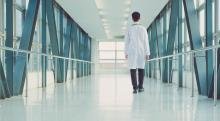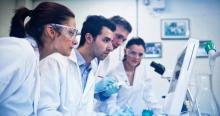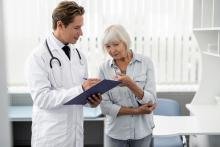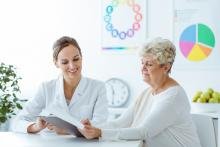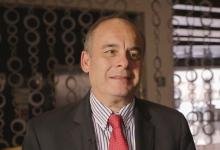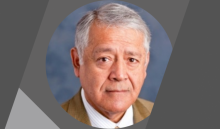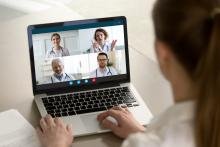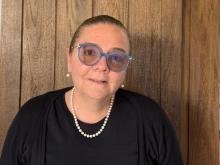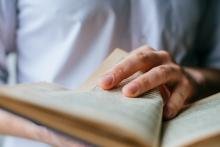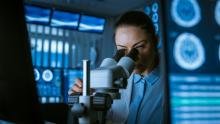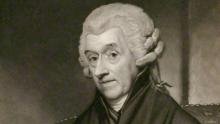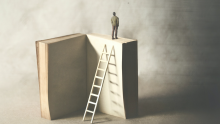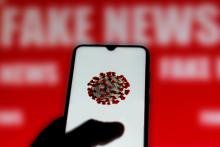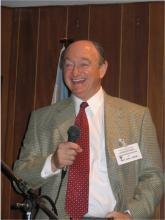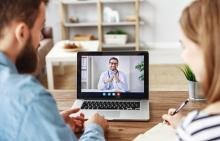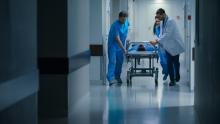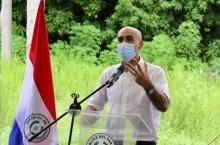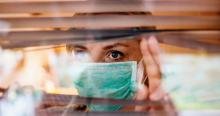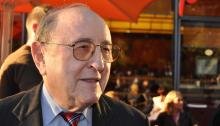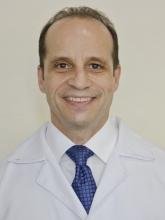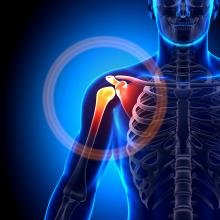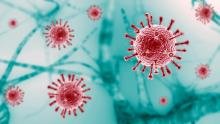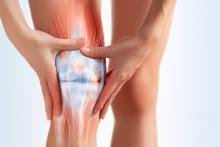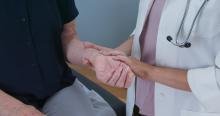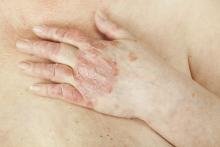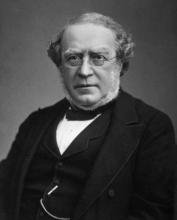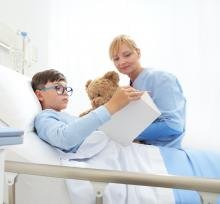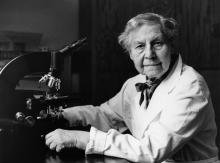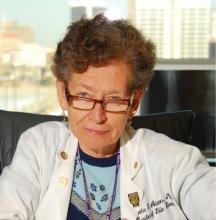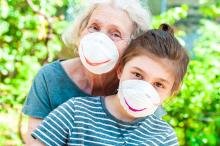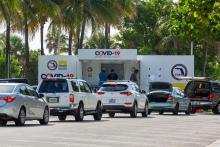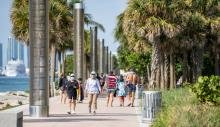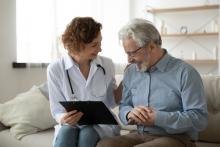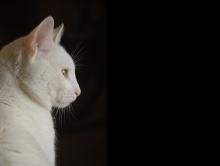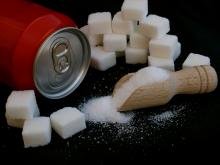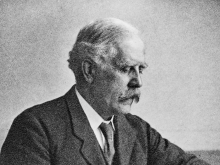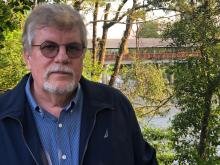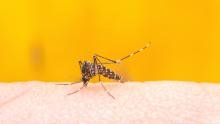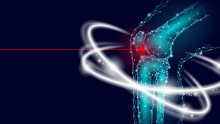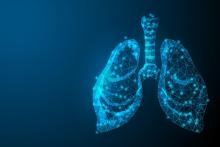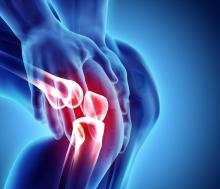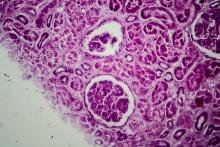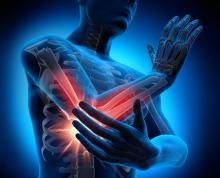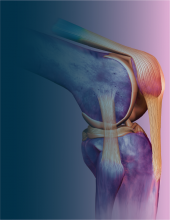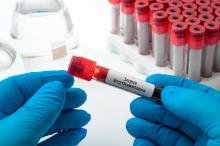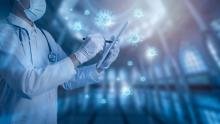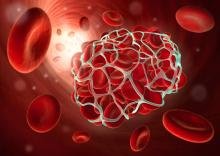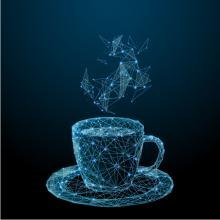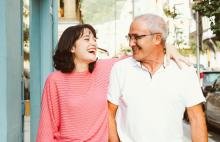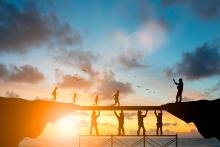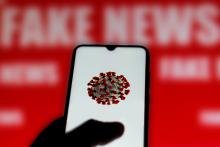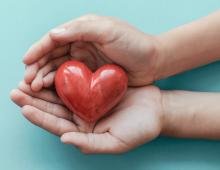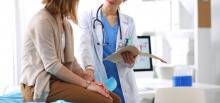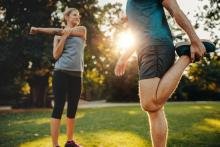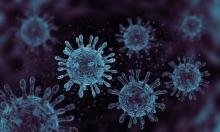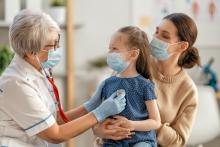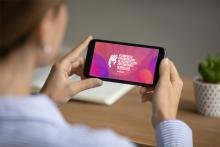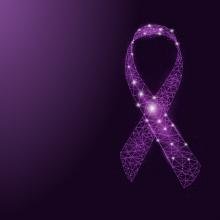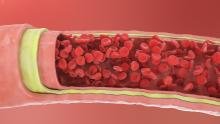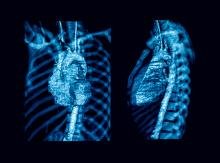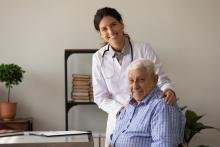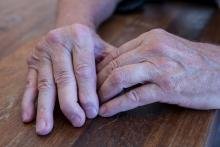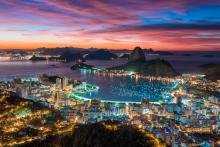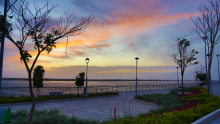“My name is Alejandra Babini, I am a rheumatologist and a medical clinic specialist. I am the head of Rheumatology at the Italian Hospital in the city of Córdoba, Argentina. I was president of the Argentine Society of Rheumatology”, this is how the current president of the PANLAR 2021 Scientific Committee introduces herself, which she calls “an honor”.
And, “as if that weren't enough”, she says, since June 2020 she has been in charge of the hospital's febrile outpatient area in the context of the Covid-19 pandemic.
Afterwards, a conversation in which she talked about her day, how her week at the hospital went and the escape that chairing the Scientific Committee has been. “Yes, an escape”, she repeats, perhaps because it allows her to disconnect for a moment from a global reality, perhaps because she comes across amazing work, or because of the union of colleagues from all over the continent in favor of the same objective...Or all of them at the same time.
“At first I saw it as a difficult mountain to climb, but PANLAR has mechanisms that encourage participation and I think this is something to highlight, that there is an Executive Committee and a president who is totally dedicated to solving problems, as well as a technical support team”, she says and smiles while mentioning that there is communication “about 10 times a day” among the committee members and that this has created a brotherhood.
PROGRAM
She begins talking about the PANLAR 2021 program by giving a preamble with five words: it has super interesting features. Next, she explains how the process was implemented and ends with the main topics that will be presented.
"80% of the scientific program are proposals that were submitted and assessed by the PANLAR Science Committee. This seems to me to be very particular because the program is based on the interests that rheumatologists of the Americas have and with many local elements from several of our countries", she says.
291 scientific works were submitted. Out of 61 oral presentations, 24 were selected as very interesting in four sessions, and the other 267 were presented as e-posters, which also feature a presentation recorded by each author. “Trying to save a little bit the face-to-face aspect with virtuality as best as possible”, she notes.
“The congress will be held August 12 – 15. Pre-congress will take place on August 12th, and there will be three interesting activities: a Review Course of the American College of Rheumatology, a Course on Telemedicine and Virtual Resources –quite interesting and relevant since in this time of pandemic, it is imperative for us as rheumatologists to find tools that help not to neglect our patients with chronic pathologies– and the third one is a Review Course in Pediatric Rheumatology with a program that was entirely proposed by the PANLAR Pediatric Study Group”, Dr. Babini states.
“Just as in June the national football teams compete in the Copa América, at the Congress there will be a Copa América of Rheumatology, where each country will have a team of young rheumatologists. The Copa América of Rheumatology is a quiz contest, with rheumatology and some general culture questions, where points are accumulated. It is an interesting educational event. We all watch the Copa América until the end, and it's all for the sake of victory, obviously”, she points out, adding that there will also be sessions of controversies of topics where not everything is black and white, but rather a lot of gray, with subjects such as antiphospholipid syndrome, systemic lupus erythematosus and difficult-to-treat rheumatoid arthritis, where there always be someone for and against certain points that are going to be debated, “the idea is that the sessions should not be a keynote speech, because we are talking to experts”.
COVID-19 will also have a place. There will be several oral and e-poster presentations on how the pandemic impacts on rheumatologic diseases, as well as the rheumatologic manifestations in what is called post-COVID or long-term COVID. “As rheumatologists we play a role in the fight against COVID, but also in monitoring those patients who after their initial recovery continue to experience certain symptoms similar to rheumatologic diseases, we will have to follow them over time and see what happens”, Dr. Babini says.
In a 90-minutes session entitled “COVID in the Americas”, there will be presentations and a final discussion about this pandemic. The session of the American College will also be about COVID-19, its manifestations and how rheumatologic patients are faring in the midst of it. “We want to see whether rheumatologic diseases make the patients more or less vulnerable or if the biological and non-biological drugs we prescribe them play any role for better or worse. There will also be a session on vaccines and post-COVID”.
“All diseases will be reflected in this program. There are also sessions on, for example, how to review and present a scientific paper; how to distribute science today; how to use the media and networks to disseminate scientific knowledge and do it properly. All that is related to how to connect with patients and the community at large so that they know about these diseases. Also, a session on informed and expert patients and their role in the dynamics of the doctor-patient relationship, the need to connect and share information and a peer-to-peer relationship”, Dr. Babini states.
VIRTUALITY
The end of 2019, almost without knowing it, marked the end of many in-person events, including medical events, due to the COVID-19 pandemic. Now, everything must be adapted to virtuality, from the patient’s care to these meetings that before meant hallway chats, coffees between sessions or meetings with colleagues from other countries. The challenge of PANLAR 2021 lies, precisely, in the “engagement” of virtuality.
“We all have been giving talks and lectures via Zoom, Google Meet or any other platform. Here you can choose something that interests you, it is a space where you forget for a moment that we are in the middle of a pandemic. Additionally, the idea was to have a program based on the interests of PANLAR rheumatologists so that it would be interesting for them. In contrast to last year, we have included small breaks, so that we give people time to go for a coffee or a mate, if you are in Argentina and Uruguay. We thought of not having such an uninterrupted program so people can really get hooked”, she says. .
In addition, she explains, everything will be recorded, “then if you are busy, you can go back over the conferences you want”, indicating that there are pre-recorded and live conferences.
“We tried to put together a diversified program, covering a little bit the expectations of all kinds of topics. We want to give the classic topics a twist, making them more dynamic around debates, and offer the participants something different, something that will be useful for their daily practice or that excites them enough to work together to collect new data”.
PROCESS
The Scientific Committee consists of eight people that have met twice in virtual meetings, besides constant email exchanges. They distributed tasks and in two weeks all the papers were read, “I have read one by one the 291 papers submitted, as a double-check”.
“I have not found it burdensome, and on the contrary, for me it is soothing, a joy. I come home from the hospital, I close the gloomy part, the “covidness” part, and enter an oasis of joy, so for me, helping in the organization of this event has been nothing but joyful. I have been doing it with lots of enthusiasm within a space in which I forget about everything, and it seems that we are back to normal life, at least for a while” she confesses.
The educational proposals were also reviewed by this committee, “we rejected only four because they did not fit in the program, and we talked to the authors so they can present next year”.
We received proposals from all the countries, as well as from all the study groups, who keep records of various of our pathologies in the Americas and are starting to have a scientific production of publications in high impact journals, “that is how this congress becomes a platform of high-level scientific publications for all scientific works”.
HER LIFE
“My father was an engineer and my mother a piano teacher, so my vocation did not come from that side, but when I was 16, I thought: I like this”. It is with these words that Dr. Babini begins to tell her story, beyond a selection of scientific works and exhausting working days in the midst of a pandemic.
“My dad worked in the United Nations for a long time, I was born in Argentina, and we traveled around the world for many years. I finished high school in Rome and when I decided to study medicine, I came back to Argentina. I have to say that when I had to rotate in rheumatology, I loved it”, she confesses, adding that she was also the first resident at the private hospital with her two bosses, Francisco Caeiro and Alejandro Albarelos.
In the hospital where she is currently working, she founded the Rheumatology Department and, she says, “It is a specialty that has changed a lot since I started, which was already interesting. With the emergence of new therapeutics, it has been transformed into an area of constant change and each time we have more and more solutions to diseases that did not exist 20 years ago”.
“I have been a widow for almost 14 years now, my children were still very young back then, so it was hard to find a work-life balance, but thanks to many people, but specially to my parents who helped me a lot to move forward in life I did it successfully, and medicine was just one part of my life”, she says.
Her older son, Manuel, is 25 years old and is a journalist, he has been living in Australia for 3 years. Her daughter, Lucía, is 23, is in her fifth year of medical school and she would like to do something surgical, “so she would be an operating room girl, which for me was horrifying because I did not like that at all”, she says with a laugh.
It was a surprise when Lucia told her she was going to study medicine. “The entrance exam was in February, and she told me in December. As I saw her as a civil rights activist, I saw her more as a lawyer or something else. I was surprised and will not deny that I was happy inside and I thought that even though these two put up with a hard-working mother, she was not scared, and she is so dedicated that, in my opinion, she will be much better than me”, she says with a mother’s pride.
SELF CHALLENGE
Even if at the moment is not possible to do much, and there is not free time to do other activities, Dr. Babini enjoys meeting her friends and, she says, Lucia has been dancing since she was 2 and a half years old, “and so, after taking her there for so many years and waited for her to finish the class, a group of moms asked the teacher to set up a class for us and then we started dancing; I danced flamenco for a long time and 4 or 5 years ago I am dancing Latin rhythms: salsa, bachata, merengue. I love dancing, in fact, at PANLAR parties I am always the first to dance” she confesses.
“It is a self-imposed challenge, because it is not the same to dance by yourself as dancing with a teacher who makes even people with no rhythm dance. I thought to myself, what am I doing here, struggling in my 50s, with stage fright, but then I started to enjoy it, to make friends. Now we take classes via Zoom, and keep on dancing at home, non-stop, at least to have a space not only for physical activity, but also to let go, to use your body to transmit something else. Of course, dancing is a hobby, but in another reincarnation, I would certainly dedicate myself to dance”, she reveals.
From her patients she has learned perseverance, “I want to pay back the trust they put in me, they honor me with their friendship. I have young patients that I have seen become parents and have a normal life. You always learn, from their ability to overcome, their resilience, I take that as an example for my own life. The truth is that I learn a lot from them”.
You do not have to be cruel, but you have to be honest. You should not disguise reality, but you should make it more bearable, if they asked 500 times, 500 times you should respond. Those, perhaps, have become her premises over time, and have been quite useful in this time of uncertainty, as sometimes can be the diseases she diagnoses. “You should first have to quiet the mind so that the body can heal” she maintains.
PANDEMIC TIMES
About the pandemic, she says “on a personal level I have never seen so many people die and on a professional level that is very hard, because it is the front line”.
“In order to handle this difficult time, surrounded by sadness and death, I think you should have your own life under control, otherwise, you cannot be there. Each life that we have taken away from that virus is a huge satisfaction, we have to understand that medicine has limitations. You learn to respect and value life much more, but seeing so much suffering, telling someone you have to hospitalize their parent or child because they have bilateral COVID pneumonia with an uncertain prognosis and seeing people crying and not knowing if they will see their relatives again or not, is devastating for me”.
She confesses, “one thing is that I learn to live with it, but each of these family situations hurts me, it is devastating, the day I stop connecting with my patients at that level I can no longer be a doctor”.
She has moments when she would throw her cell phone onto the wall, but she knows that “you should count to three and move on” and “someone has to do it, someone has to be here”, and that is how she has been doing it from the beginning of the pandemic. Dedication and vocation, words that lead to another one that fills her heart: gratitude.
She ends by saying that she knows she is strong, that even though she is tired, she can do more. Her soul “shrinks”, and she knows that after this “we will not be the same, we are no longer the same. And that is not a bad thing, maybe it was something we had to go through to grow”.





